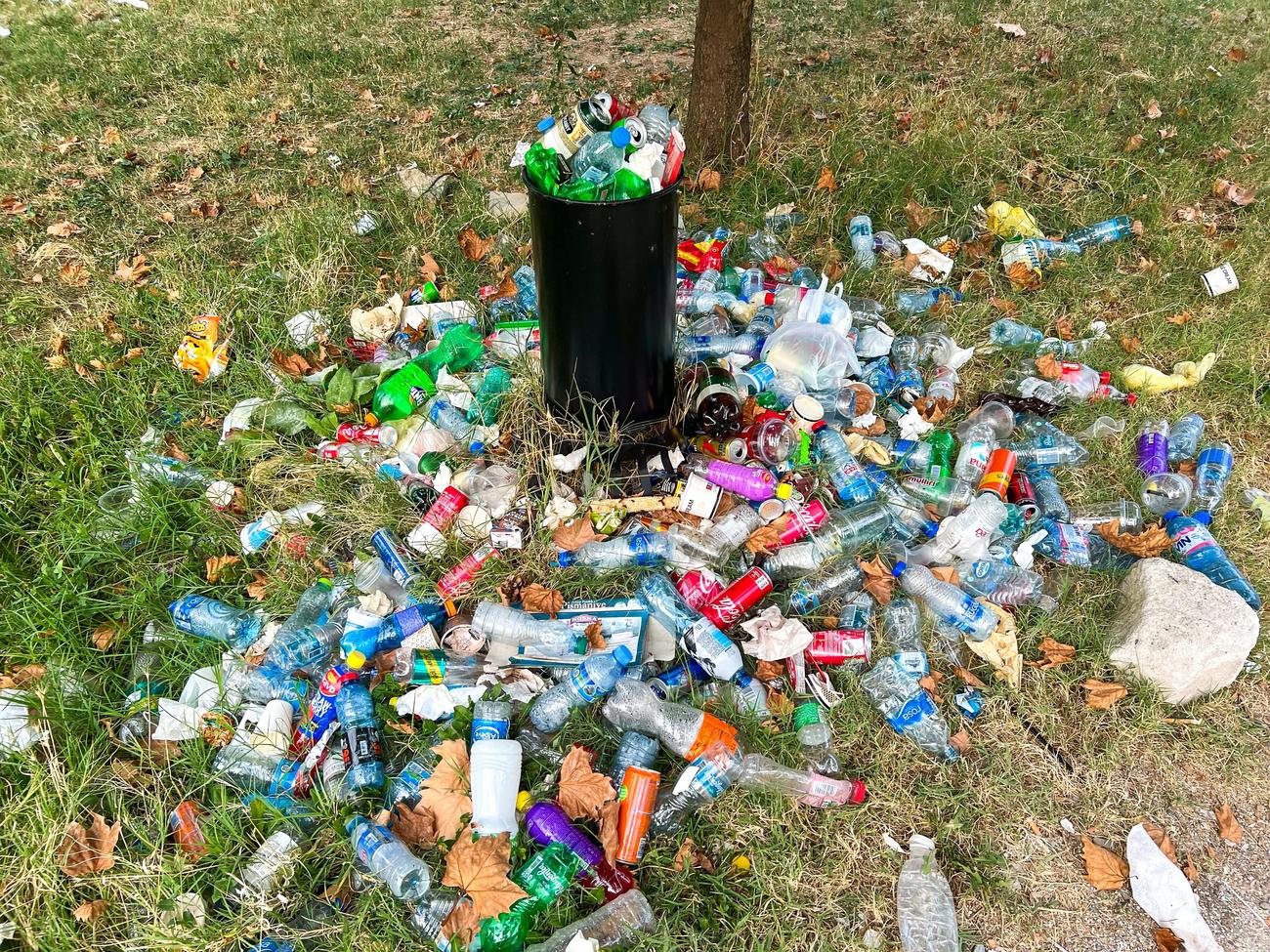Discover the Environmental Benefits: Recycling Facts about Aluminum

As society becomes more conscious of the impact our everyday actions have on the environment, recycling has become a vital part of our sustainability efforts. When it comes to recycling, aluminum is a heavyweight champion. From the soda cans we casually discard to the foil used in our kitchens, aluminum has an incredible ability to be recycled repeatedly without losing its quality. But what are the environmental benefits of aluminum recycling? In this article, we will explore fascinating recycling facts about aluminum and delve into the crucial role it plays in conserving resources, reducing energy consumption, and mitigating the environmental impact caused by aluminum production. So, join us as we uncover the exciting world of aluminum recycling and how it contributes to a greener planet.
Recycling Facts about Aluminum
Aluminum recycling is a crucial practice that contributes significantly to conserving resources, reducing energy consumption, and mitigating the environmental impact caused by aluminum production. In this article, we will explore some important recycling facts about aluminum that highlight its environmental benefits.
Reduced Energy Consumption: Did you know that making recycled aluminum only requires around 5% of the energy needed to produce new aluminum? This means that by recycling aluminum, we can save a substantial amount of energy, leading to a significant reduction in carbon emissions. Recycling truly is a game-changer when it comes to conserving energy resources and combating climate change.
Longevity of Aluminum: Aluminum is one resilient material! In fact, nearly 75% of all aluminum ever produced is still in use today. This impressive statistic showcases the durability and versatility of aluminum, making it an excellent candidate for recycling. By recycling, we can extend the life cycle of aluminum, reducing the need for constant production and saving additional resources.
High Recycling Rates: When it comes to recycling, aluminum sets the bar high. In most industrial markets like automotive and building, recycling rates for aluminum exceed an impressive 90%. This remarkable achievement demonstrates the well-established recycling infrastructure and the industry’s commitment to sustainability. Aluminum is truly an infinitely recyclable material, which means it can be reused again and again without losing its quality.
Recycling one tonne of aluminum saves the carbon dioxide emissions of driving nearly 27,000 miles. Imagine the positive impact we can create by collectively recycling aluminum cans, packaging, and other aluminum products.
- Environmental Benefits: As environmental enthusiasts, we must acknowledge that the environmental benefits of aluminum recycling go beyond just energy conservation. Recycling one aluminum can saves enough energy to run a television for three hours. Now, let’s pause and think about the magnitude of this accomplishment. By simply recycling our used aluminum cans, we not only save energy but also reduce greenhouse gas emissions and protect our environment.
So, why is it important to focus on recycling facts about aluminum? Well, by understanding the environmental significance of aluminum recycling, we can encourage individuals, businesses, and industries to actively participate in this sustainable practice. It’s time to flip the switch and support the recycling of aluminum, a material that offers endless possibilities for reuse.
In conclusion, recycling is not just an option, but a responsibility. With its ability to conserve energy, extend the life cycle of products, and minimize environmental impact, aluminum recycling is a key strategy in the fight against resource depletion and climate change. Let’s all join hands in embracing the recycling revolution and make a positive difference for our planet.
“Recycling aluminum not only saves energy but also protects our environment. Every small action adds up to create a significant impact.”
Aluminum is a fascinating metal with a multitude of interesting facts surrounding it. Did you know that Aluminum is the most abundant metal in the Earth’s crust? It’s true! To discover more intriguing tidbits about this versatile material, click here: 10 interesting facts about aluminum. You’ll be amazed by the various uses, properties, and historical significance of aluminum. So, don’t miss out on this opportunity to expand your knowledge and appreciate the wonders of aluminum!
Recycle Aluminum Cans: Key Facts You Should Know
[youtube v=”pHW_SWKQh24″]
Aluminum Can Recycling: A Sustainable Solution
Recycling aluminum cans is not just a commendable effort; it’s an essential step towards reducing waste and conserving resources. One fascinating fact is that making recycled aluminum requires only about 5% of the energy needed to produce new aluminum. This significantly reduces carbon emissions and helps combat climate change. In fact, recycling one tonne of aluminum saves the equivalent carbon dioxide emissions of driving nearly 27,000 miles. This is a simple yet effective way to make a positive impact on our environment.
The Power of Aluminum Recycling
Did you know that nearly 75% of all aluminum ever produced is still in use today? This impressive statistic showcases the longevity and recyclability of this amazing material. To add to that, recycling rates for aluminum in most industrial markets exceed 90%. This signifies the widespread recognition of the value and importance of aluminum recycling. So, every time you toss an aluminum can into a recycling bin, you contribute to the conservation of resources and the reduction of waste in landfills.
The Aluminum Recycling Process: From Can to Can
Once aluminum cans are collected for recycling, they go through a series of steps to transform them into new cans. At facilities like the one in New Hanover County, the cans are crushed using a can crusher system. Despite being an older system, it has proven to be highly effective for counties generating smaller amounts of recyclable materials. After being crushed, a blower transports the cans into a trailer, which is then transported to a dedicated recycling facility. These facilities play a vital role in turning the old cans into new ones by melting and shaping the aluminum into ready-to-use can sheets.
“Recycling one aluminum can saves enough energy to run a television for three hours.”
The Benefits of Aluminum Recycling
Aluminum recycling brings numerous benefits to both the environment and society. First and foremost, it conserves energy. By utilizing recycled aluminum instead of producing new aluminum, we save substantial amounts of energy that would otherwise be consumed in the extraction and refining processes. Additionally, recycling extends the life cycle of products, reducing the demand for raw materials and minimizing environmental impact. From manufacturing new cans to producing car parts, the versatility of recycled aluminum is impressive.
“Encouraging aluminum recycling is essential for conserving resources and combating climate change.”
Take Action: Recycle Aluminum Cans
Now that you understand the significance of recycling aluminum cans, it’s time to take action. Every aluminum can you recycle contributes to the reduction of waste in landfills and the conservation of valuable resources. So next time you finish that refreshing soda or sparkling water, remember to deposit the can in a recycling bin. By doing so, you play an active role in building a more sustainable future.
“Recycle as much as you can, especially aluminum cans!”

FAQ
Question 1
What are some benefits of recycling aluminum?
Answer 1
Recycling aluminum has numerous environmental benefits. It requires only around 5% of the energy needed to produce new aluminum, conserving resources and reducing energy consumption. Additionally, nearly 75% of all aluminum ever produced is still in use today, showcasing the longevity of this recyclable material. In most industrial markets, such as automotive and building, recycling rates for aluminum exceed 90%. Furthermore, aluminum is an infinitely recyclable material, meaning it can be recycled repeatedly without losing its properties.
Question 2
What is the environmental impact of recycling one tonne of aluminum?
Answer 2
When one tonne of aluminum is recycled, it saves the carbon dioxide emissions equivalent to driving nearly 27,000 miles. This highlights the significant reduction in greenhouse gas emissions achieved through aluminum recycling. Additionally, recycling one aluminum can alone saves enough energy to power a television for three hours. These statistics demonstrate the positive contribution of aluminum recycling in mitigating the environmental impact caused by aluminum production.









